State Senator Jeff Raatz, State Senator Chip Perfect, State Rep. Randy Frye, and State Rep. Randy Lyness appeared at the event on Tuesday.
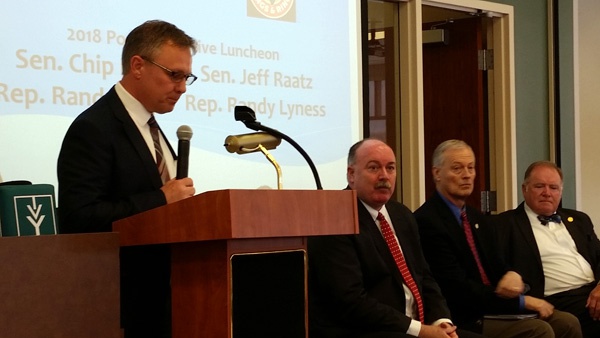
Local lawmakers appearing at the Dearborn County Chamber of Commerce's Post-Legislative Luncheon on Tuesday, April 17 included (left to right) State Senator Jeff Raatz, State Senator Chip Perfect, State Rep. Randy Frye, and State Rep. Randy Lyness. Photo by Mike Perleberg, Eagle Country 99.3.
(Lawrenceburg, Ind.) - Four local state lawmakers took questions from constituents in Lawrenceburg on Tuesday.
State representatives Randy Frye (R-Greensburg) and Randy Lyness (R-West Harrison), as well as state senators Chip Perfect (R-Lawrenceburg) and Jeff Raatz (R-Centerville), spoke at Tuesday’s Dearborn County Chamber of Commerce Post-Legislative Luncheon.
Lyness shared what he thought were the two most important accomplishments by lawmakers during the 2018 session.
“Probably making up the difference in the school funding,” he said, “but in road dollars, counties are getting 40 percent more than they got a year ago. Which has got to mean quite a bit for Dearborn County and every county.”
There were a couple bills dealing with aligning the state tax code to align with the new federal tax code and school safety funding that were not passed before the 2018 session ended last month. Raatz shared his feelings on why the bill didn’t cross the finish line before the session adjourned.
“It was a cumbersome process because of the lateness of how things worked,” Raatz explained.
The Senate did pass the bill, literally in the 11th hour on the final day of the session, but it did not get a final vote in the House. Raatz did not point the finger of blame at the House.
The local lawmakers will return to Indianapolis for a one-day special session the week of May 14 to pass those bills.
Attendees took turns asking questions of the southeastern Indiana caucus.
Small Cell Technology
Lawrenceburg Municipal Utilities director Olin Clawson asked why lawmakers closed a loophole on local governments’ ability to restrict small cell technology. The technology allows telecommunications companies to place wireless internet transmitters on utility poles and other infrastructure.
Frye said many communities – such as Dearborn County – exploited an exception that was made in last year’s small cell technology bill that was included to protect one town with underground utilities. This year, lawmakers closed that loophole.
“We put that in there to protect a community that was already totally underground. Some of these communities decided they were going to seize that opportunity and make themselves an ‘underground community’ when everything in the whole town is above ground – electric and phone. I don’t think that was right and that wasn’t the intent of the law, so we changed it,” Frye said.
Perfect added that bringing broadband internet service to rural areas is essential.
“It is such a critical issue that we accelerate the proliferation of broadband across rural areas so that they can stay economically viable that we had to do something,” Perfect said.
School Funding and Safety
Franklin County Community Schools Board of Trustees member Sara Duffy quizzed the lawmakers on whether they support giving parents of public school students the same $1,000 tax deduction for textbooks that private school parents receive.
Raatz said there are many disparities that private and charter schools get compared to public schools. Although the textbook tax credit is afforded to private school parents, he said the scale is against private schools in many other respects.
Duffy also wondered about school security. Frye said public safety is his passion, and he supports the idea of establishing a grant program to help schools corporations bear the cost of adding more school resource officers.
Drugs and DCS
Teacher Mary Lewis discussed her observances of drugs impacting young people. Raatz said the legislature this year passed a new law requiring doctors and pharmacists to consult the INSPECT prescription monitoring system to help determine if a patient is “doctor shopping” for multiple, simultaneous prescriptions.
For all the efforts to combat the drug abuse epidemic in Indiana, Perfect believes the long solution is workforce development.
“We need to get people doing something better with their lives,” he said. “We are creating opportunities. If we can match those opportunities up with people and skills, people can have a better choice.”
The drug discussion led into the topic of an increase in the number of children in need of services, many of them cared for by addict parents.
“This is another example of why it is so critical to solve this problem in many different ways, because it is costing all of you dramatically. Everybody has a stake in this, because of agencies like (the Indiana Department of Child Services) where we have to increase their workload,” Perfect said.
In a well-chronicled story, the former director of the Indiana Department of Child Services resigned last year. The agency had 29,315 children in foster care in fiscal year 2016, far more than any neighboring state.
Lawmakers believe it could be a systemic issue with DCS, which is undergoing an assessment by order of Governor Eric Holcomb.
“We’re taking a good, hard look at it,” Raatz said.
Redistricting in Indiana
A bill that would have formed an independent study committee to review Indiana’s process for drawing legislative district lines did not pass the legislature. Business owner Tom DeVille sought an explanation from the local lawmakers, each of whom are members of the supermajority party in the Indiana House and Senate.
Perfect answered that he has heard that Indiana’s districting process is among the most fair in the nation. What’s fair is an ongoing discussion, he said. There was some discussion on that at the Statehouse this year.
Indiana lawmakers will redraw legislative district lines following the 2020 census.
Tolling Indiana’s Highways
Cari Baylor, president of Milan-based Baylor Trucking, asked if tolling may be brought to certain parts of the state, including southeastern Indiana. The Indiana Department of Transportation could present a tolling plan to the legislature to consider in the 2019 legislative session.
Perfect said tolling is a fairness issue.
“Everybody wants somebody else to pay the tax… …That’s what’s tolling is about, trying to target in the costs on that activity on people who are using those roads,” Perfect said.
Perfect said he understands that if trucking companies have to pay tolls to transport goods, that cost is eventually passed on to consumers.
The senator added an assurance that Indiana’s fourth port will be in Lawrenceburg.

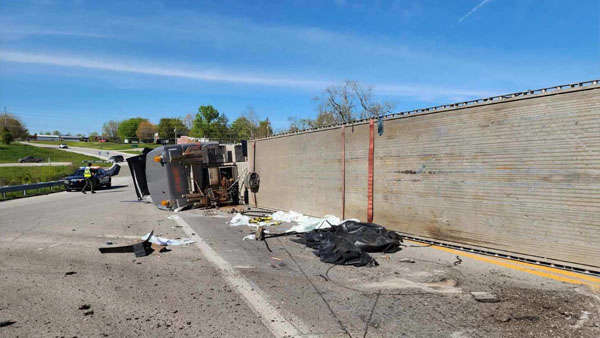 Multiple Agencies Respond to Semi Rollover in Versailles
Multiple Agencies Respond to Semi Rollover in Versailles
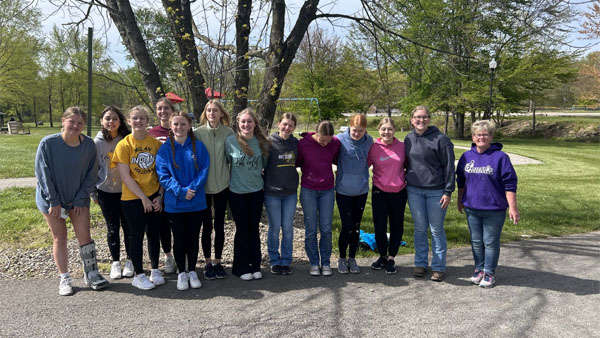 Milan High School Hosts Best Effort Day
Milan High School Hosts Best Effort Day
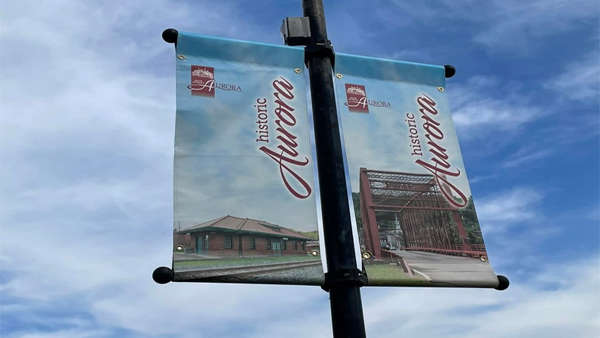 Aurora Announces Citywide Cleanup
Aurora Announces Citywide Cleanup
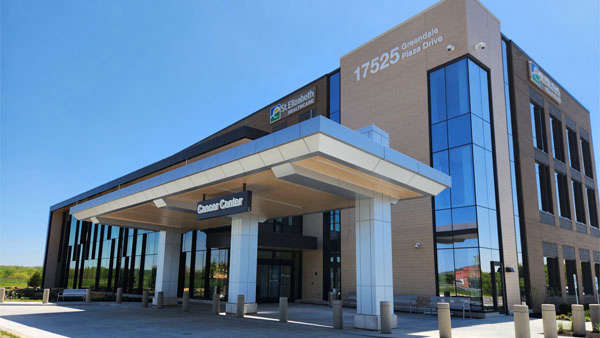 Opening of St. Elizabeth Dearborn Cancer Center Brings Comprehensive Cancer Care to SEI
Opening of St. Elizabeth Dearborn Cancer Center Brings Comprehensive Cancer Care to SEI
 First Early-Voting Saturday Set for this Weekend in Dearborn County
First Early-Voting Saturday Set for this Weekend in Dearborn County
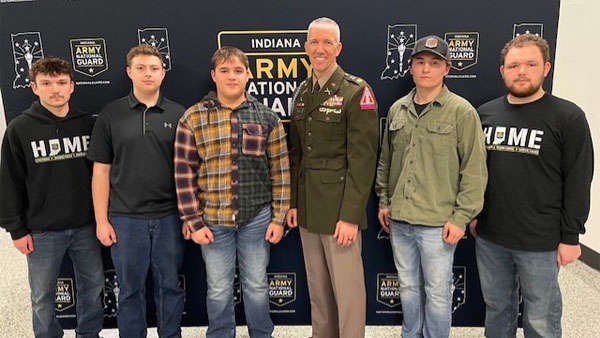 South Ripley High School Triumphs in Indiana Army National Guard Enlistment Challenge
South Ripley High School Triumphs in Indiana Army National Guard Enlistment Challenge











